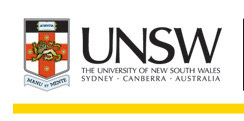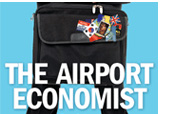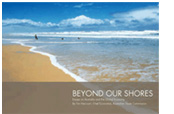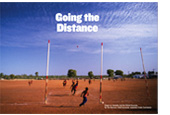The Thais that bind – after the Bangkok blasts
By Tim Harcourt*
The Thais have always been good to Australia. Dr Supachai in 1994 strongly supported Australia and its inclusion in various regional institutions and APEC when others tried to exclude us. And in 2005 Thailand and Australia signed TAFTA that helped build our trade momentum into ASEAN and the rest of Asia. In fact in terms of numbers of companies exporting and other trade outcomes TAFTA has been more successful than the trade agreement Australia signed with the USA at the same time.
Thailand has also been a good friend of South Australia. For many years the Port Adelaide submarine corporation was based in Bangkok under the capable leadership of Graham Storah. Woods Bagot, a century old Adelaide architecture firm was based in Thailand too and SMR an automotive components company based itself on the Eastern Seaboard of Thailand (the ‘Detroit of South East Asia’).
So it is especially important that Australia (and South Australia) support Thailand in its hour of need. That’s why this week, on a trade mission to Singapore Malaysia and Thailand lead by South Australia Premier Jay Weatherill that the decision was made to press on with the Bangkok leg of the trip despite the tragedy of the bomb blasts on the very Monday of the week long mission.
In fact the Australian Ambassador to Thailand Paul Robilliard says that the 80 strong Trade mission from South Australia is the largest Australian Business mission to Thailand. The Thai ministers of transport Dr Arkhom Termpittayapaisita expressed his and the Thai Government’s appreciation for the mission’s decision to continue to Bangkok so soon after the bombing in his first public appearance since his promotion in a long mooted cabinet reshuffle.
So what impact has the Bangkok bombing had on the Thai economy?
The biggest impact is on Thailand’s crucial tourism industry which has been affected over the past year by the coup and related political demonstrations. But other trade sectors of the Thai economy will continue particularly given Thailand’s key position as a trading and logistics hub for the Mekong delta which comprises their neighbouring countries of Vietnam Cambodia Laos and the emerging Myanmar (Burma). That’s why Australian transport and logistics giant Linfox sees Thailand as key to their ASEAN strategy as do other exporters and investors.
But even without the bombings what is Thailand like as a place to do business? According to Greg Wallis Australia Senior Trade commissioner in Bangkok (and a proud South Australian from Kangaroo Island) there are several myths about Thailand that need to be dispelled:
“People often think that Thailand is a poor country but it’s actually a middle income country with a large urban middle class with healthy purchasing power. It’s not a low labour cost economy either like. Cambodia Laos or Myanmar (Burma). And yes it has had 12 coups since 1932 but its political instability doesn’t adversely affect Thailand’s continued prosperity. In terms of doing Business it ranks 26 in the World Bank report ahead of the Netherlands on 27 and Japan on 29. It also has the world’s highest number of Facebook users” he explains.
There were some good signs this week on the South Australia mission. The mission included companies from a variety of sectors including premium food and wine aerospace defence education and fashion. South Australia’s Special Envoy Sir Angus Houston and Trade and Defence Minister Martin Hamilton-Smith lead a high quality aerospace and defence mission looking to form partnerships with Thai airways and the Thai aeronautical industry. This was coupled with education partnerships with the universities and TAFE SA to match Thailand’s human capital needs in skills and education.
All in all it’s been a terrible week for Thailand in a tough year in terms of political instability. That’s why after such a tragic week it was important that Australia (and South Australia) show solidarity with the Thais at their time of tragedy.
#Stay Strong Thailand.
Tim Harcourt is the J.W.Nevile Fellow in Economics at UNSW Australia Business School and author of The Airport Economist and Trading Places www.theairporteconomist.com
He visited Bangkok in his capacity as Adviser – International Engagement to the Premier of South Australia Hon. Jay Weatherill MP













No Comments so far ↓
Comments are closed.